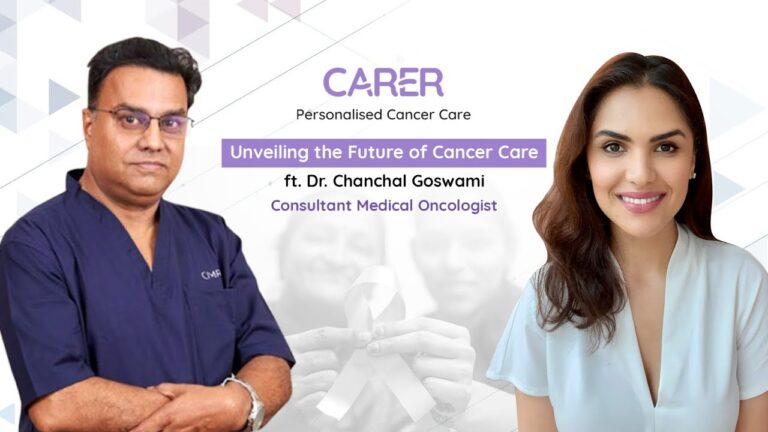The Evolution of Cancer Care: A Holistic Approach – Insights from Dr. Chanchal Goswami

Over the past ten years, there has been a significant change in the way cancer is treated, moving away from a strictly medical approach and toward a more patient-centered, multidisciplinary paradigm that prioritizes prevention, early detection, and overall health. Important insights on how cancer treatment has changed and how patients, caregivers, and physicians can collaborate for better results were revealed in an insightful discussion with seasoned oncologist Dr. Chanchal Goswami, who has over 12 years of expertise.
The Evolution of Cancer Care
When asked about the evolution of cancer care in the last decade, Dr. Goswami highlighted the importance of early detection and multidisciplinary collaboration.
"I have been in oncology for the last 12 years, and the biggest shift I’ve seen is the move towards personalized and preventive care.”
“Earlier, the focus was only on treating cancer once diagnosed. Now, we emphasize lifestyle management, early screening, and psychological support alongside medical treatment."
This shift has been crucial in improving survival rates and quality of life for patients.
The Role of Caregivers: Empathy Over Sympathy
One of the most overlooked aspects of cancer care is the role of caregivers. Dr. Goswami categorizes caregivers into three types:
- The Overprotective Caregiver
- The Fear-Driven Caregiver
- The Ideal Caregiver
"The best caregivers are those who empathize, not just sympathize. They discuss everything with the patient, consult doctors, and create a supportive environment. A multidisciplinary team—including a psychologist, nutritionist, caregiver, patient, and doctor—is essential for holistic cancer care."
In contrast to Western nations, where elderly patients frequently rely entirely on healthcare infrastructure, Dr. Goswami also noted that family support is a boon in Indian society. To prevent burnout, caregivers must emphasize self-care as well.
Prevention & Early Detection: The Key to Better Outcomes
A reactive approach to healthcare leads to late-stage diagnoses, making treatment harder and costlier. Dr. Goswami stressed the critical importance of prevention and early screening:
"There’s no point overemphasizing prevention—early detection saves lives. While not all cancers can be prevented, lifestyle management (exercise, diet, avoiding tobacco/alcohol) can reduce risk significantly."
He also highlighted that 15% of cancers are familial (linked to genetics), making family medical history crucial. For high-risk individuals (e.g., breast, prostate, ovarian cancer), regular screenings are vital.
The Financial Aspect: Why Medical Insurance Matters
A surprising but crucial point Dr. Goswami raised was the lack of awareness around medical insurance in India:
"Many Indians save for their children’s education or weddings but neglect health insurance. Cancer treatment can be financially devastating—having cancer-specific insurance removes a huge burden during an already stressful time."
Studies show that lifestyle interventions during treatment can reduce hospitalization costs and improve recovery—making insurance partnerships with wellness programs a game-changer.
A New Era of Cancer Care
The future of cancer care lies in prevention, early detection, multidisciplinary collaboration, and financial preparedness. As Dr. Goswami beautifully put it:
"Treat the clinician as a human, not a god—when doctors and patients work as friends, the results are the best."
By embracing holistic, proactive, and patient-centered care, we can transform cancer from a life-threatening diagnosis into a manageable condition, with hope, healing, and better survival rates for all.






